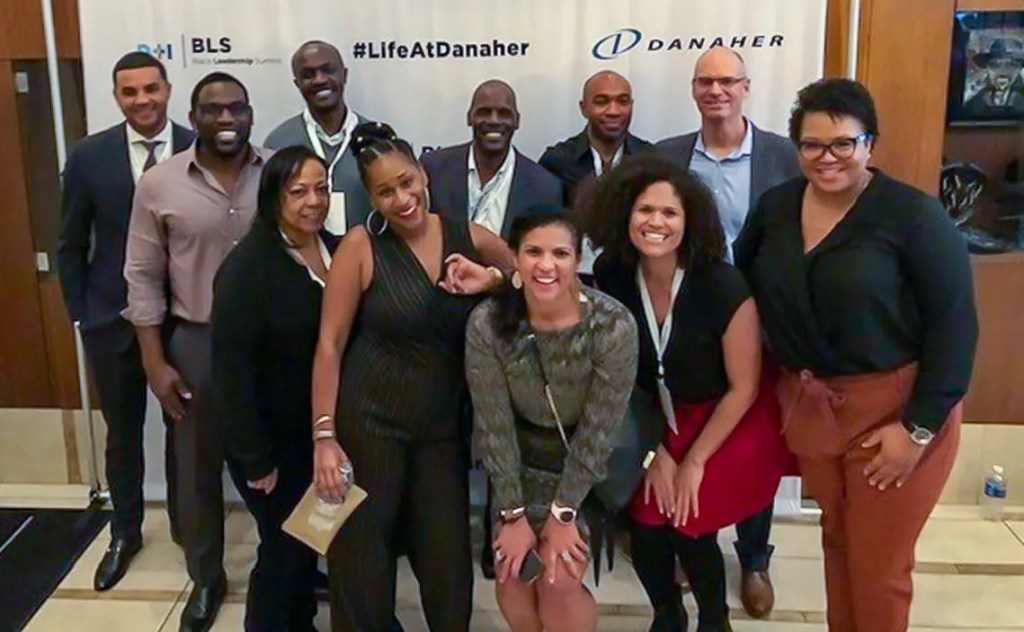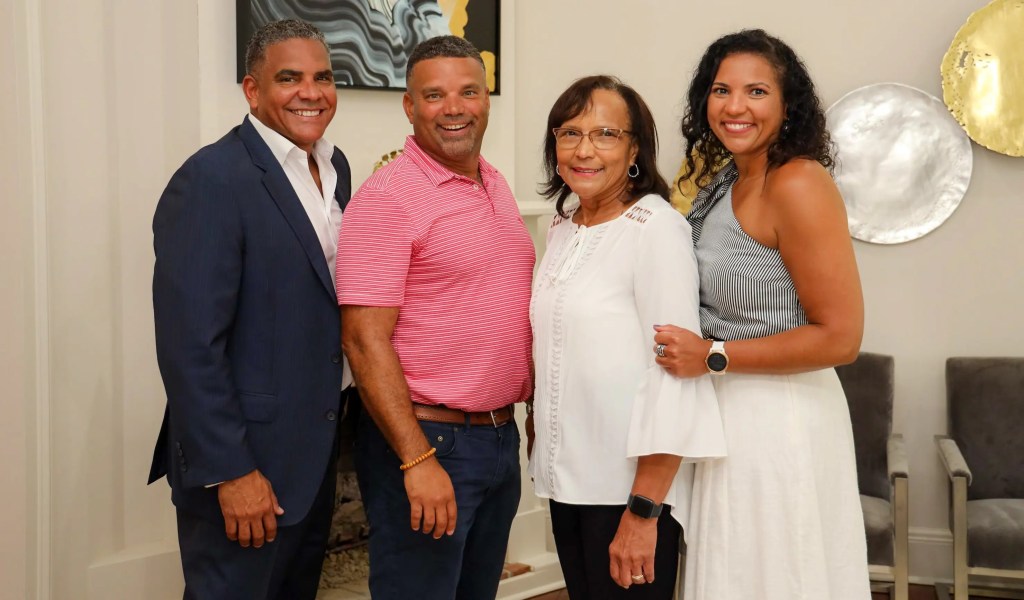Why does Senior Sales Director Shwanna Tauriac compare Cepheid to a rocket ship? Because the company’s rapid growth has brought exciting changes—just the sort of challenge Shwanna was looking for in her career. In this interview, Shwanna reflects on her path to Danaher, why an open approach to leadership is best, and the bumpy but exciting road ahead.

What’s your role on the Cepheid team?
I’m the Senior Director of National Accounts. My sales team consists of seven people managing the largest Integrated Delivery Networks (IDNs) in the U.S., including government, Group Purchasing Organizations (GPOs), and National Reference Labs.
Cepheid is growing so rapidly that in addition to coaching the team to secure business and all that fun stuff, I also help to build and improve internal processes. As a manager, my job is to move the ball forward by helping people with suggestions and coaching. For example, if I want my team to reach out to CEOs, I give them the right tools to empower them to feel comfortable speaking with that type of customer.
Also, during this time of COVID, I often worked with the teams to help when customers are upset about their allocations or other issues. The customers all want things yesterday, but we only have control of what we can control. It has really been both challenging and rewarding—for myself and my team—to have those tough discussions while still maintaining relationships with the customers.
Tell us about your journey to Cepheid.
I am a microbiologist by degree. I’ve always been a science and math geek; it just came naturally to me. And I’ve always been a people person. I come from southern Louisiana, where people are warm, friendly, and full of sunshine. But when I graduated and went to work in a lab, everybody was an introvert. I was like, “Yeah, my bacteria don’t talk back. I’ve got to do something different.” So I started a sales position with VWR International and learned about distribution.
But my career really grew when I began as a sales consultant at Becton, Dickinson and Company (BD). Sales was a great marriage between my technical abilities and my personality. At BD, they identified my potential early on—especially my talent with strategic accounts and maintaining high-level relationships—so I went through a leadership development program and eventually got management and capital sales experience.
When the opportunity at Cepheid presented itself, I honestly wasn’t looking. It just seemed like such a great chance to join a high-growth company that felt like a rocket ship. Because Cepheid is growing so rapidly, there are a lot of things that still need to be worked on here. It’s an opportunity to take my experiences from all the divisions and companies I’ve worked for and build a national strategic account team.
My first role at Cepheid was as a Regional Director of strategic accounts. This role gave me the opportunity to learn the organization, the people, where they were, what we needed to work toward. I felt comfortable enough to articulate my desire for growth to my manager and the coaches around me, and we made a plan. Within 12 months I was promoted to a senior director.
And if I ever outgrow Cepheid, I know there will always be other positions within Danaher I could go to and still stay in the family. That sense of family is important to me.

Tell us a little bit more about your leadership philosophy.
As they say, “My hustle game is strong.” If you tell me, “Hey, I need your help out here,” I’m going to be with you. I think people respect when they see that you work really hard. I try to be the best advocate I can for my team.
Communication is important, and so is being as open to learning from others as they are to learning from me. For example, we recently reorganized the strategic account teams, and there was a gentleman on my team who filled in during the transition. His style of working with customers wasn’t what I would have done, but his approach has proven to be successful. That was totally exciting for me to see and to learn from.
I know I have my own unique way of selling and doing my job, and I believe in that type of autonomy because I think it brings creativity. My way isn’t always the right way, but if we all get where we’re trying to go, I’m all good.
What’s challenging about your job?
Change management is probably the most challenging part of my job. Cepheid was a startup that allowed for a lot of flexibility. Now that the organization is growing and becoming more of a corporate entity, a lot is changing. For example, executive-level leadership doesn’t have time to work on every single deal anymore, and you can’t go to them whenever you want. We have a chain of command, and we’ve had to develop new approval levels and systems to accommodate this shift. Adapting to these new processes has been challenging, but we are making it through!
As a manager, I try to help my team with the changes by having open conversations. I believe people should be happy. We spend a lot of our waking hours at work; we should be happy there. And at the end of the day, if someone isn’t happy, they’re not going to give their best. We both have to be all-in for this to work.
Also, as we change, we’re developing better processes and systems to accommodate our growth. It’s a challenge, but it’s exciting, too. I appreciate the fact that we’re building the plane while we’re flying because I get to be creative. When I interview candidates, I like to be up-front and honest. I don’t want to waste their time or mine putting on a front or a show. I want to be real. I’m like, “Hey, I need help building this plane, so if you’re in, let’s do it.”

Looking at the future for you and for Cepheid, what are you excited about?
Building strategic excellence—we don’t have that yet. It’s exciting to really build a program, to find teaching and learning opportunities for our teams, and ask, “How do we continue that process? How do we help them continue to develop?” I often say these types of things aren’t one-and-done. You constantly have to work toward them and learn more.
Part of building strategic excellence is choosing the right people. Strategic thinking requires you to not only look at today but five and 10 years down the road. The win in strategic accounts is building that relationship, not getting the PO. The POs will come.
Honestly, Cepheid is a great company. We have a great product, and we are really going places because innovation is a good part of our repertoire. Of course building processes comes with challenges and hurdles. But once we get there, it’s going to be fantastic. And the journey is great, too. People just have to want to be a part of the ride.

Leave a Reply